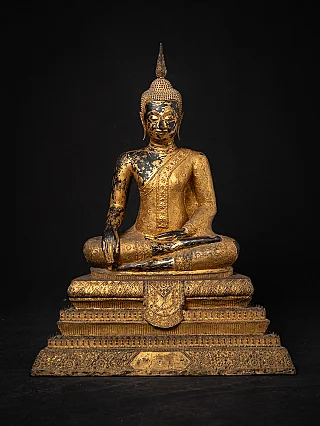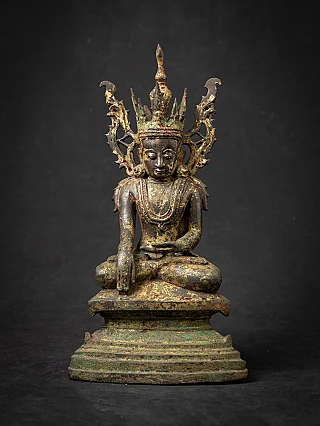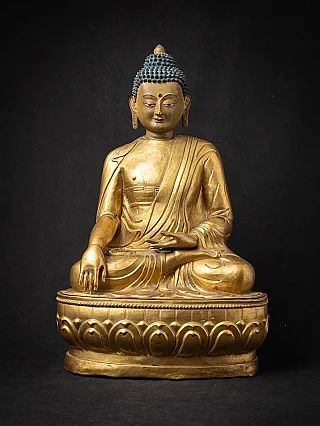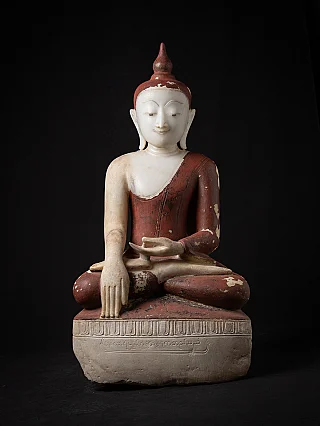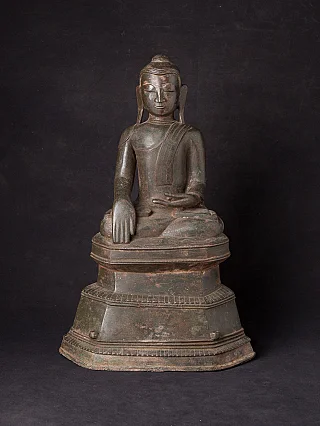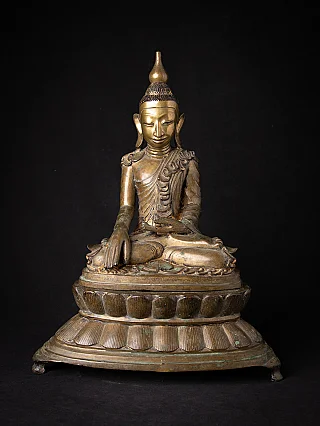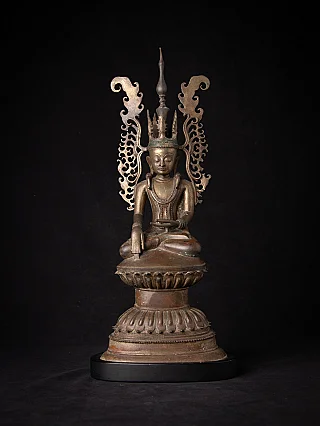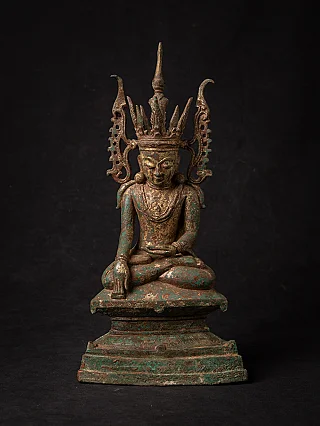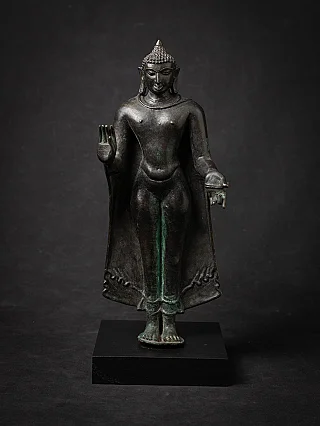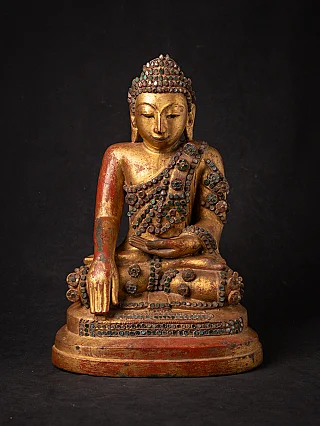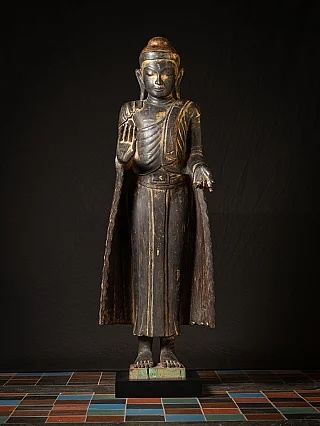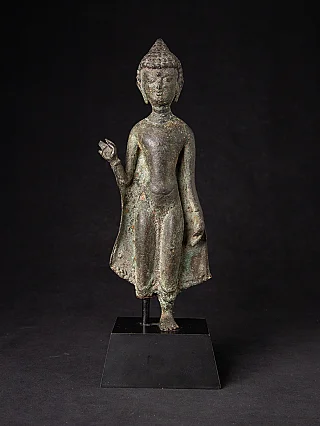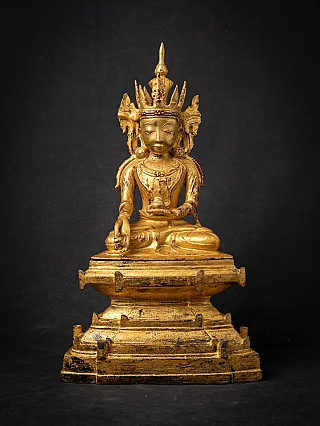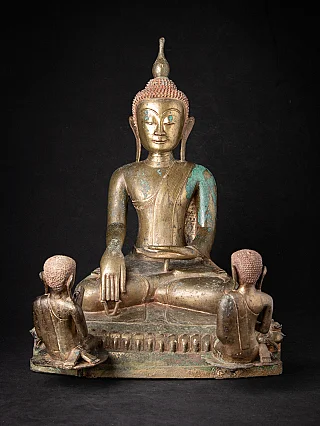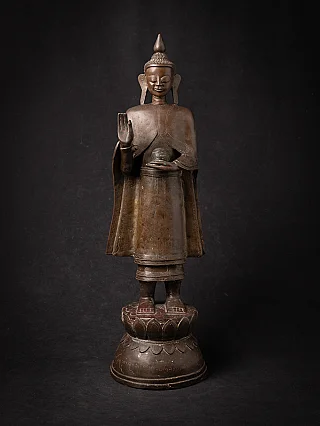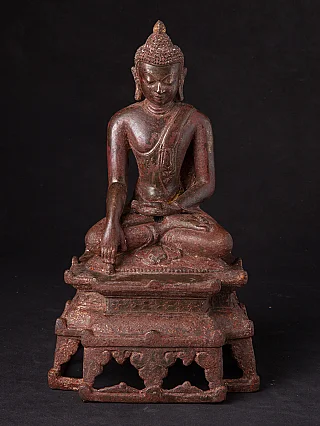Gratitude in Buddhism: The Heart of Thanksgiving
Author : Peter Vredeveld

Gift your family a peaceful Buddha statue
Thanksgiving is when we gather with loved ones to reflect on what we are grateful for. In Buddhist philosophy, gratitude is not just an occasional practice; it is a lifelong endeavor that permeates our daily lives and shapes how we interact with others and the world. As we approach this season of giving thanks, let's explore how Buddhism's teachings can deepen our gratitude experience, offering a more profound sense of peace and joy.
The Buddhist Concept of Gratitude
Gratitude in Buddhism is more than simply saying "thank you." A deep appreciation arises from understanding the interconnectedness of all life. Buddhism teaches that every moment, every experience, and every person we encounter is part of a more extensive web of existence. Acknowledging this interconnectedness encourages gratitude for life's simple and profound aspects.
The practice of gratitude in Buddhism involves recognizing the kindness that others extend to us, from the food we eat to the teachings that guide us. Buddhist teachings remind us that everything we have comes from the generosity and efforts of others, whether directly or indirectly. This realization fosters a sense of appreciation that goes beyond personal gain, emphasizing the importance of interdependence.
Thanksgiving and the Spirit of Interconnectedness

In Buddhism, the interconnectedness of all beings is a key teaching. The Metta Sutta, for example, speaks of loving-kindness and compassion for all beings, from friends and family to strangers and even enemies. This interconnectedness reminds us that our well-being is intricately tied to the well-being of others. When we reflect on this, our hearts naturally open in gratitude.
When viewed through the lens of Buddhism, Thanksgiving becomes a celebration of personal blessings and the countless acts of kindness and generosity that sustain us. It is a reminder that we are all connected and that our ability to experience joy and peace is made possible by the efforts of those around us, both living and departed.
The Practice of Cultivating Gratitude
In Buddhism, gratitude is cultivated through practice, particularly in meditation. Through mindfulness meditation, practitioners learn to be present with their thoughts and emotions, cultivating a deep appreciation for the present moment. One of the central aspects of Buddhist meditation is focusing on the breath, which serves as a reminder of the impermanence of life. Recognizing that each breath is a gift encourages us to cultivate gratitude for simply being alive.
In addition to mindfulness meditation, gratitude can be practiced through dna or generosity. Giving without expecting anything in return benefits others and helps develop a sense of appreciation for what we have. Whether through time, resources, or love, giving cultivates a spirit of gratitude in the giver.
The Role of the Bhumisparsha Mudra in Gratitude

One of the most iconic gestures in Buddha statues is the Bhumisparsha Mudra, the gesture of touching the earth. In this mudra, the Buddha's hand reaches toward the planet as a symbol of grounding and enlightenment. Touching the world represents the Buddha's moment of enlightenment, symbolizing his triumph over Mara, the demon of illusion.
This gesture also reminds Buddhists of their gratitude for the earth and its abundance. By acknowledging the earth as a source of life and nourishment, we deepen our appreciation for all it provides. We can reflect on this mudra during Thanksgiving, grounding ourselves in gratitude for the natural world that sustains us.
Benefits of Gratitude in Buddhism
Look at our collection of statues
The practice of gratitude in Buddhism has far-reaching benefits for our mental and emotional well-being. Numerous studies have shown that cultivating gratitude can increase happiness, reduce stress, and improve overall mental health. By practicing mindfulness and focusing on what we are thankful for, we shift our attention from what is lacking in our lives to what is already present. This shift promotes contentment and peace, key aspects of the Buddhist path.
Gratitude also helps cultivate compassion. When we reflect on the kindness and generosity we have received, we are more likely to extend that kindness to others. This is reflected in the Buddhist principle of karu, or compassion, which encourages us to alleviate the suffering of others. Gratitude becomes a gateway to compassionate action, transforming our hearts and minds.
Mindful Thanksgiving: How to Practice Buddhist Gratitude

This Thanksgiving, why not incorporate some Buddhist practices into your celebration? Here are a few ways you can express gratitude in a mindful, Buddhist way:
- Mindful Meditation: Before your Thanksgiving meal, sit in silence and practice mindful breathing. As you inhale and exhale, reflect on the interconnectedness of all beings and express gratitude for the food, the people, and the circumstances that brought this moment to fruition.
- Reflect on the Present Moment: The present moment is sacred in Buddhism. During Thanksgiving, try to immerse yourself fully in the present, appreciating each bite of food, each conversation, and each moment of connection with loved ones.
- Generosity: Thanksgiving is a time for giving, and generosity is a form of gratitude in Buddhist practice. Whether through donating to those in need or offering your time to others, find a way to give back this Thanksgiving.
- Cultivate Loving-Kindness: Reflect on the Metta Sutta and extend loving-kindness to all beings, wishing for their well-being and happiness. By practicing loving kindness, we open our hearts to gratitude for the lives of others.
The Transformative Power of Gratitude in Buddhism
As we celebrate Thanksgiving, let us remember that gratitude in Buddhism is not just about acknowledging what we have. It is about understanding that all things are impermanent and that our blessings, large or small, are gifts that should be cherished. By incorporating gratitude into our daily lives, we deepen our connection with others and the world, promoting peace, joy, and compassion.
This Thanksgiving is a time to reflect on how gratitude can enrich our lives. Whether through meditation, mindfulness, or acts of generosity, we can all cultivate a heart full of appreciation, just as the Buddha taught.
Share this page




















